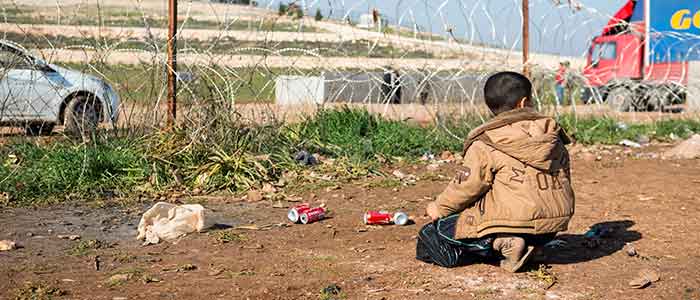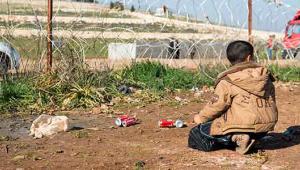Web_SyrianBoyTurkishBorder_iStock_000024765194_Large.jpg

Young Syrian refugee at Turkish border
The support was promised at the Supporting Syria and the Region conference held in London in February, where the international community pledged the largest amount ever raised for a humanitarian appeal in one day.
EU commissioner for humanitarian aid Christos Stylianides announced the funding as the crisis enters its sixth year – “another sad milestone in the world’s worst humanitarian disaster since the Second World War”.
He said the funding will support the most vulnerable people inside Syria and in neighbouring countries, and called for unconditional humanitarian access to build on the recent efforts during the ceasefire.
Funding will be channelled through the United Nations, international organisations and NGO partners to meet urgent needs in food, health, water, sanitation and education.
Syria will see €140m, while Lebanon and Jordan will receive €87m and €53m respectively. Syrian refugees in Turkey will benefit the most from the funding, with €165m.
Turkey is currently hosting almost 3 million refugees. Many have also sailed from Turkey’s shores in treacherous conditions to arrive in Greece, where they can then continue into Europe.
However, the effective closure of the western Balkans route – refugees’ main passage to Europe – has led to thousands of people stuck in Greece at the border with Macedonia.
Desperate to stem the flow of people onto the continent, EU leaders struck a tentative deal for a ‘one in one out’ system with Turkey. This would see Turkey accept refugees returned from Greece in return for the EU resettling refuges from within Turkish camps.
It is hoped this would remove the incentive to make the perilous crossing from Turkey to Greece, break the business model of people smugglers and reduce the flow of migrants and refugees coming to the Europe.
EU leaders have also discussed increasing the €3bn in aid offered to Turkey last December to €6bn. Turkey has also called for visa liberalisation for its citizens and for talks on the country’s accession to the EU to restart in return for shouldering the burden.
Also today, the commission announced €38m for new development programmes in Sri Lanka and €10m for research into the Zika virus, currently spreading rapidly across Latin America.












